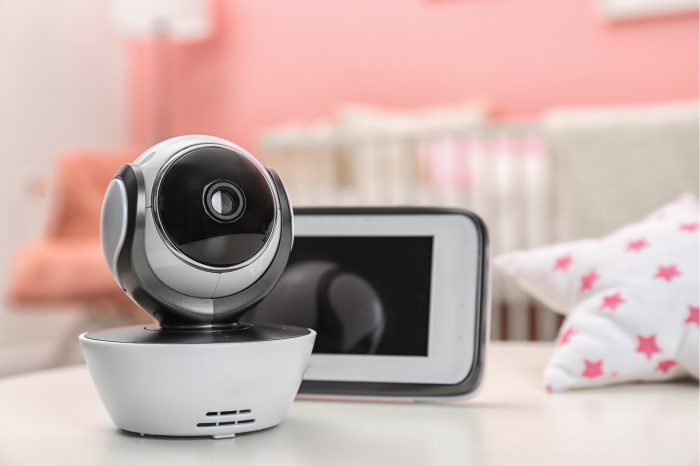
Products Requiring NOM Certification: Categories, Examples, and Relevant Standards
Normas Oficiales Mexicana (NOMs), also known as Mexican Official Standards, apply to all products sold in Mexico. However, some product types require NOM certification, and are thus subject to stricter regulations. These products include, but are not limited to: electronic products; electrical products; wireless technology, including telecommunications products; automotive products; helmets and footwear; and more.
This guide will explain the product categories requiring NOM certification, and provide examples of product types and the relevant NOM standards. By understanding these requirements, you can confidently ensure your operations comply with Mexican regulations.
For background information, see: What Is NOM Certification for Mexico?
Do My Products Require NOM Certification?
Not all products that must comply with NOM standards require certification; some only require compliance. Here’s how it generally breaks down:
NOM Certification: This applies to products where certification by an accredited body is necessary to confirm adherence to the applicable NOM standards. Common categories include electrical appliances and electronic devices. We will explore these categories in more detail below. Other products and sectors that may require certification include:
Food
Personal Protective Equipment (PPE)
Chemical products
Automotive products
Plastic products, including toys
Construction and mechanical items
IT software and gaming
Helmets and footwear (Compliance with safety standards)
Child strollers
Playground equipment
Pipes, showers, and toilets (Compliance with water efficiency standards)
NOM Compliance: Some products may only need to comply with NOM standards, but do not need formal certification. Compliance involves following specific, relevant standards related to quality, safety, or environmental impact. Products that must comply with NOM standards include, but are not limited to toys, food and non-alcoholic beverages, and textiles.
Labeling Requirements: For many products, especially food, beverages, and cosmetics, compliance often includes specific labeling requirements defined under NOM standards, but not a full certification process.
The requirements vary significantly between categories and specific products, so it’s important to consult the relevant NOM standards for your product type or seek advice from a compliance expert to understand what is required.
Examples: Electronic and Electrical Product Categories Requiring NOM Certification and Relevant NOM Standards
Below, we will focus on the requirements for NOM certification for electrical, electronic and wireless technology products, as the requirements for these sectors are amongst the most stringent.
| Product Type | Definition | Product Examples | Relevant NOM Standard Example |
| Electronic Products | Items with an electronic circuit | Computers, video game consoles, audio systems | NOM-001 |
| Electrical Products | Items that use an electrical current | Household appliances, electric toys, power tools, lamps | NOM-003 |
| Wireless Technology and Telecommunication Devices | Items that communicate over a distance without physical connection | Mobile phones, routers, satellite communication systems | NOM-208 |
Electronic Products
Definition: This category encompasses items or device, or part of such a product, that has an electronic circuit.
Examples: Computers, televisions, audio systems, office electronics, and video game consoles.
Relevant NOM Standards: Products such as computers and televisions must comply with NOM-001, which sets general safety requirements and test methods for electronic devices, and NOM-019, which addresses the safety of data processing equipment. These standards ensure that electronic products are safe to use and meet the necessary quality controls before entering the Mexican market. There are also NOM standards that ensure electronic products’ energy efficiency, such as NOM-026-ENER and NOM-029-ENER.
Electrical Products (Including Lighting)
Definition: Electrical products refer to devices or installations that generate, modify, transmit, or measure electrical currents or electromagnetic fields. For consumer products, electrical products typically must be plugged in to operate.
Examples: Household appliances like blenders and refrigerators, electric toys, industrial equipment such as electric motors, power tools, and lighting fixtures like lamps and chandeliers.
Relevant NOM Standards: The key standard for electrical products is NOM-003, which outlines safety requirements for electrical appliances, including lamp products. These standards help ensure that electrical products are safe and reliable. There are also NOM standards that ensure electrical and lighting products’ energy efficiency, such as NOM-017-ENER, energy efficiency and safety requirements for self-ballasted compact fluorescent lamps and bulbs.
Wireless Technology and Telecommunication Devices
Definition: This group includes any equipment or devices that communicate over a distance without being physically connected, typically using radiofrequency waves.
Examples: Mobile phones, routers, modems, and satellite communication systems.
Relevant NOM Standards: One relevant standard is NOM-208, which governs short range transmission and wireless Bluetooth products. This standard is crucial for maintaining the integrity and security of communications in Mexico. More relevant NOMs can be found on the NYCE website.
Note: The lists of examples and relevant NOM standards are not exhaustive – there may be other product types and NOMs included in the category but not listed above. If you’re not sure whether your product requires NOM certification, a third-party certification body like QIMA-NYCE can help.
What If My Products Need NOM Certification?
If your products require NOM certification to enter the Mexican market, the process begins by identifying the specific Norma Oficial Mexicana (NOM) standards applicable to your products. Once identified, your products must undergo testing by an accredited laboratory to ensure they meet the necessary requirements. Working with a recognized certification body like QIMA-NYCE helps streamline the process.
Why QIMA-NYCE for NOM Certification?
QIMA-NYCE is a leading conformity assessment body that specializes in providing certification services for the Mexican market. We are known for our expertise in regulatory compliance across various industries including electronics, telecommunications, information technology, chemical, and plastics industries.
We help you navigate the complexities of NOM certification through laboratory testing, document review, and the issuance of certification marks once compliance is verified.
Learn more about our NOM certification services or contact us today to book.
Read More
The Complexities of Importing to Mexico and the Importance of a Proactive Focus - Learn how to get proactive about the customs process when importing your products to Mexico.
Related Articles


